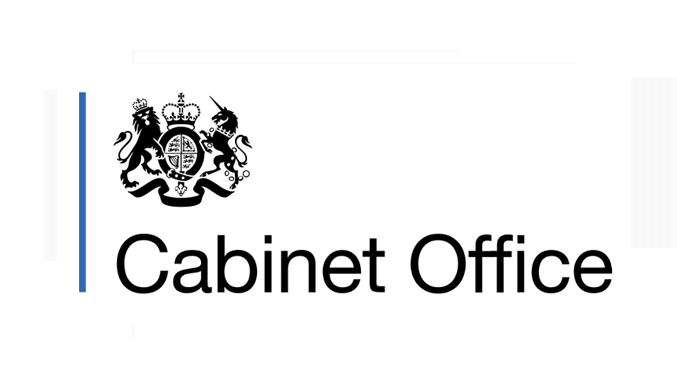The launch of a new National Procurement Policy Statement (NPPS) marks the next step in the government’s plans to transform public procurement. It details national priorities for public procurement, and how contracting authorities can help shape them. The statement emphasises how public procurement can play a key part in our economic recovery from the impact of the Covid-19 pandemic. It also sets out standards of best practice that will maximise social value, including the transition to zero net carbon.
The guidance focuses on three key areas:
Social Value
The NPPS places emphasis on creating new businesses, new jobs and new skills; tackling climate change and reducing waste, and improving supplier diversity, innovation and resilience.
To implement social value and carbon reduction into your procurement activities, we recommend the following:
- Consider how to incorporate social value at the commencement of all procurement activity
- Ensure you have the right award criteria to assess social value, and that any social value commitments are incorporated in the contract
- Consider using a known methodology or matrix to capture social value in a tender process
- When looking at carbon reduction via products or services, consider the total life cost to ensure lower carbon options are not ruled out on straight acquisition cost. Often lower carbon options (vehicles is a good example of this), might have a higher acquisition cost but lower ongoing costs associated with use.
How TPPL can help implement social value:
- We’re able to incorporate social value into mini-competitions under all our frameworks and Dynamic Purchasing Systems that are designed to maximise supplier diversity
- We are focused on helping our members tackle climate change and achieve carbon zero through these key areas:
- Technical product knowledge
- Links to emerging technologies, innovative suppliers and supply-chains
- Carbon zero focused solutions that include; repowering existing conventional fuelled vehicles to electric & hydrogen drivetrains, Hydrogen buses, car clubs, electric vehicle charging and alternative fuel infrastructure.
Commercial and procurement delivery
According to the statement, all contracting authorities should consider whether they have the right policies and processes in place to manage the key stages of commercial delivery identified in this statement, where they are relevant to their procurement portfolio.
Here are the key things to consider when implementing commercial and procurement delivery:
- For smaller contracting authorities, this priority could look quite overwhelming, but the statement itself makes clear that not all of the elements listed apply to all procurement activity.
- Many smaller contracting authorities lack effective procurement policies and can be reactive rather than proactive with their procurement activity. Organisations should invest time and effort, with external support, if necessary, to ensure the right policies and processes are in place.
- Collaboration is paramount for the smaller contracting authorities in achieving this priority, that can be through shared services, consortia/professional buying organisations, or directly with other contracting authorities.
How TPPL can help implement commercial and procurement delivery:
- We can support this priority via the procurement consultancy services we can provide, particularly in the end-to-end tender management support.
- Driving improvement in policy processes from an organisational procurement perspective, through health checks and policy/strategy review and creation activity.
Skills and capability for procurement
Here are the key recommendations around incorporating skills and capability for procurement:
- Contracting authorities should work to develop procurement policies and controls that align to organisational objectives. Good procurement policy and strategy clearly state how procurement is linked to and contributes to corporate objectives. Changes in the external environment that have or are about to happen are identified, as are implications for the function and the wider organisation.
Without clear policy, strategy and controls that align to organisational objectives an organisation’s procurement activity may tend to be reactive. In these circumstances, resources will focus on activity as it arises, which will typically be budget focused on an individual basis. Good procurement is proactive, and having policy, strategy and controls that link to wider corporate objectives will help achieve this.
- The NPPS makes clear that where contracting authorities identify gaps, they should plan how to fill them through developing capacity, collaboration, or use of external support – including consortia/professional buying organisations.
- It is important that smaller contracting authorities engage in guidance and support to understand the options available.
How TPPL can help implement skills and capability for procurement:
- As a framework and Dynamic Purchasing System (DPS) provider, TPPL is ideally placed to support contracting authorities in ensuring they have sufficient capability and capacity via the following key areas:
- Consultancy support in benchmarking the organisation.
- Reviewing policies and strategic objectives.
- Plugging capability gaps with full end-to-end support either via frameworks or with comprehensive consultancy support for non-vehicle/materials procurement
What will the future of procurement now look like?
Phil Williams, TPPL Procurement Director said:
‘The priorities of the statement that are focussed on the core standards of procurement capability and delivery represent an interesting challenge for smaller contracting authorities. Clearly, any organisation aims to have the right policies/processes in place, and have the right skills and capability. However, as anybody who has tried to hire good procurement resource knows, to have the right people to achieve these priorities is a quite a challenge. The private sector, the Government, NDPBs, and unitary councils are magnets for qualified procurement professionals. By contrast, smaller housing providers, district councils, and other bodies governed by public law that classify as a contracting authority are going to face challenges in achieving these priorities over the coming years’
If you are a public body currently considering how the National Procurement Policy Statement might affect your organisation and would like assistance, please contact us to discuss how we might assist you.
For more information on the National Procurement Policy Statement visit https://www.gov.uk/government/publications/procurement-policy-note-0521-national-procurement-policy-statement
